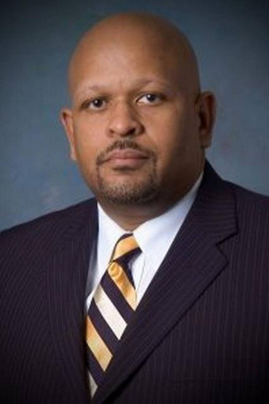
By Jim Morrill and Michael Gordon | The Charlotte Observer
Invoking police killings from Ferguson, Mo., to Madison, Wis., and Charlotte, a Mecklenburg County lawmaker Tuesday introduced legislation to ban racial profiling by law enforcement.
“This is a great first step in having the conversation about how our law enforcement agencies interact with our communities of color and our communities as a whole,” Democratic Rep. Rodney Moore said at a Raleigh news conference.
House Bill 193 also calls for more diversity training for law enforcement and more oversight through citizen review boards. The bill also calls for more thorough and public reporting of crime statistics, more diversity training and more authority for municipalities to create review boards.
The effort comes as racial tension has flared in a series of high-profile police shootings around the country. On Sunday, more than 80 Charlotte residents vented their frustration with police at an often tense public forum. Across town, another group called for the release of a controversial police video in the 2013 police killing of Jonathan Ferrell, an unarmed black man shot 10 times by an officer.
Some law enforcement officials question the need for more legislation. They say racial profiling already is illegal. And Moore’s bill, they add, would create unnecessary regulation.
The N.C. Association of Chiefs of Police, headed by Bence Hoyle of Cornelius, is among those opposed. In a statement released Tuesday, the group said racial profiling in law enforcement might exist in isolated cases. But it said existing policies and safeguards address the problem. The police chiefs also said citizen review boards should be a local decision not a statewide mandate.
Among the half-dozen lawmakers joining Moore was Rep. Cecil Brockman, a 30-year-old Democrat from High Point.
“As a young African-American of color, this bill affects me personally,” he said. “I’ve had dealings with law enforcement where I didn’t necessarily agree with why I’d been pulled over.”
Sarah Preston, policy director of the ACLU of North Carolina, said “almost all the evidence we look at shows that African-Americans are subject to additional police contact, more than their white counterparts.”
How the bill, sponsored by three Democrats, will fare in a Republican-controlled legislature is unclear. But House Speaker Tim Moore said “there is no room for racial profiling in North Carolina.”
“It is … imperative that we maintain mutual respect and trust between law enforcement and our citizens,” the Kings Mountain Republican said in a statement. “It is illegal to discriminate. The public discussion should continue to be about finding ways to encourage victims to come forward, and to enforce the laws on the books.”
But the bill is likely to meet resistance from many of North Carolina’s more than 25,000 law enforcement officials.
“I’m sure the bill’s well intended,” said Eddie Caldwell, executive vice president and general counsel of the N.C. Sheriffs’ Association. “I don’t know that it’s necessary. Racial profiling – any kind of unlawful profiling – is already illegal. There are mechanisms in place to deal with any officers who don’t adhere to that.”
Relations between law enforcement and minority populations have been frayed in episodes in a series of police shootings that have touched off riots and prolonged demonstrations.
In July, Charlotte-Mecklenburg police Officer Randall Kerrick goes on trial for voluntary manslaughter in the shooting death of Ferrell, who had gone to a house for help after wrecking his car. Police, however, believed Ferrell was a suspect in an attempted home invasion after they received a 911 call.
Rodney Moore alluded to an incident last month when Charlotte-Mecklenburg police said a 20-year-old African-American woman refused to drop a kitchen knife and lunged at police. Officer Anthony Holzhauer pulled his service pistol and shot her twice. It was Holzhauer’s third officer-involved shooting.
“He could have tased her,” Moore said. “I think that the public trust right now is strained, very strained.”
Speaking of the police shooting death of Janisha Fonville during a community meeting Sunday, police Chief Rodney Monroe said his department is working on better training. “Do I believe some officers have ill wills? Yes. But if that’s the case, we will find that out.”
Mecklenburg District Attorney Andrew Murray declined comment to comment. In a statement put out by his office earlier this year, he said the criminal justice system should be free of “racial inequality, discrimination and bias,” and that he has added safeguards in his office to ensure fairness for both victims and the accused.
Calls for more oversight
In 2013 the Charlotte City Council expanded the powers of its Citizens Review Board after a yearlong Observer investigation revealed the board had always ruled against people who filed complaints.
Moore’s bill would authorize such boards to use subpoena power, something Charlotte’s board lacks.
Participants in Monday’s news conference urged lawmakers to end profiling.
“You’ve got to assume this is happening all over the nation to greater or lesser degree,” said Rev. Nelson Johnson of Greensboro. “We don’t have to wait for more imprisonments, more death.”
More and more cities across the country have established some kind of police oversight process, said Brian Buchner, president of the National Association for Civilian Oversight of Law Enforcement.
“Civilian oversight is an important part of advancing meaningful, sustainable reform in law enforcement,” he said. “It provides a critical link between police and communities, especially in communities where that relationship is strained.”
